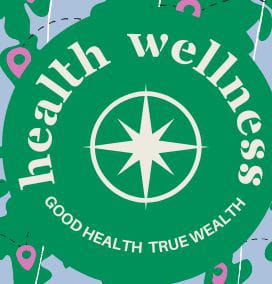Sometimes is called as active and early medical intervention in order to avoid the onset of certain diseases or conditions. It is used to enhance health wellness, to screen individuals for disease and illness and then prevent these diseases and sicknesses from taking effect. It includes mainly routine services such as examinations, counseling, immunizations, education, and community preventive services. This type of care may greatly enrich the quality of the person’s life, save money and prolong his existence since the focus is made on preventing the disease . so be alert preventive health care.
Preventive Health Care Services When it comes to personal health it is important that everyone should seek early medical treatment. It is particularly useful in diagnosing illnesses at genera, wh en they ae still easy to control and treatment is not as expensive. Prevention can help to avoid development of small problems into major health complications. On the same note, preventive health care decrease’s the strain standing on the health sector due to the few treatments and admissions. To the people, acceptance of preventive measures on health leads to better quality of life. Reducing symptoms and illnesses helps to prevent their adverse consequences, avoid inactivity, and remain mobile as people grow older. These measures are most effective in chronic disease especially diabetes, heart diseases, and hypertension complications since they have severe lifelong implications if not well handled.
1 Elements of Prevention In health care Regular Health Check-Ups Preventive health care approaches are important, and one of them is passing a routine general health check. Such visits help the healthcare providers to take exams on vital organs function, general health condition, and potential risks factor of various diseases. On routine examinations, it is standard practice to take blood pressure, cholesterol screening and BMI screenings.
2 Screenings Table of contents The Following are screenings tests meant to identify diseases before signs and symptoms manifest themselves Disease/screening test ´╗‹ Screenings are tests that aim at identifying diseases or illnesses before signs of the ailment manifests itself. They include mammography for breast cancer screening, colonoscopy for a screening for colorectal cancer, and blood glucose tests for diabetes screening. Screening options depend on age, gender, and family history, meaning that individuals who are older, men, and with a history of cancer in the family will require frequent screening.
3 Vaccinations Not only does a patient benefit from receiving an immunization but other people within a community benefit by avoiding possible outbreaks.
4 Lifestyle Modifications Preventive health care is an important aspect in disease control and preventing illnesses very important in aspects of health. This ranges from eating a healthy well-balanced diet to taking exercise, refraining from taking tobacco and keeping a check on the quantity of alcohol intake and that managing stress is a priority one. Such behaviours decrease propensity of different chronic diseases, contribute to health, and wellbeing.
5 Health Education It enlightens people and makes them capable of taking sound precautions which may keep them out of harms way.These include health needs which include the aspects of nutrition, physical activity, mental and emotional healthy practices, and substance use.
Advantages of Preventive Health Care 1 Early Detection and Treatment It has been seen time and again that diagnosing diseases at an early stage can actually go a long way to achieving good results. For example, one can explain why initial stage cancer is easier to control and has better prognosis than the last stages. Likewise, the presence of suspects such as raised cholesterol levels or raised blood pressure makes it possible to control the incidences of heart attacks or strokes.
2 Cost Savings A lot of money could be saved both at individual and system levels if people embrace preventive health care. Preventive approaches to illnesses are often considerably cheaper as compared to dealing with complicated, chronic diseases or first manifestations of other illnesses. Also, preventive and control measures may help to decreases emergent care and hospitalizations.
3 Improved Quality of Life In its broadest sense, preventive health care works to prevent diseases and facilitate healthy lifestyles, and therefore enables the individual to achieve maximum physical, mental and emotional health. This helps people maintain the quality of life and retain the productivity in every day personal and working activities.
4 Increased Life Expectancy Promoting preventive health care means that one is likely to live longer because the possibility of early death from preventable diseases is vanishingly low. Every day practices such as use of anti-snake venom, vaccinations, screenings and other healthy practices help to add years to human life.
Preventive Health Care: Challenges However, preventive health care encounters the following difficulties.They include; The first challenge is the low level of understanding by people on the part of prevention.Most people only go to the hospital when they are unwell, without ever getting checkups or screening.Also, people cannot receive preventive health services and often if they do, they have to pay a lot of money or have no insurance or live in the wrong area. Healthcare providers have more difficulties in boosting preventive care too.Lack of adequate time during appointment and unsufficient resources, inadequate training in preventive practices are other areas that may hamper effective delivery of care.All these barriers however call for a multi-sectorial approach, which involves policymakers, healthcare providers and the community.
Preventive health care <ar15> 1 1 Schedule Regular Check-Ups Regular checkups with your health care provider should be planned and on the agenda. That is why it is important to use these appointments for talking about diseases, medical history and preparing for the proper examinations and investigations.
2 Stay Informed Find out about the prevention techniques and the services to be provided to you. Knowing your risk factors and family history is a way of keeping you well informed on what to expect in future.
3 Adopt a Healthy Lifestyle One suggestion to stay healthy is to try and put the good habits into practice in your everyday life. Abstain from tobacco, alcohol and other toxic products, consume adequate amounts of fruits and vegetables, engage in reasonable physical activity, and sleep well.
4 Follow Vaccination Schedules Make sure that for some reason you and other family members take necessary shots in time. Immunizations are relevant to prevent severe infections from diseases.
5 Join Community Programs A majority of culture Hosting many health fairs, workshops, and screening. Use these sources to find out more about preventive health care and treated main services.
Conclusion Preventive health care is very important especially to those who do not embrace the civilized lifestyle as well as the health system. In this method people will have less chances of getting serious health issues since they are preventing them from happening hence enhancing their lives and well-being. Thus, utilisation of check-ups, screening, vaccinations and lifestyle choices that are capable of averting sickness are a sign of expecting to stay healthy in future. Local, state and federal governments, health care systems and society in general require concerted efforts in sensitizing the general population to embrace preventive health care.





